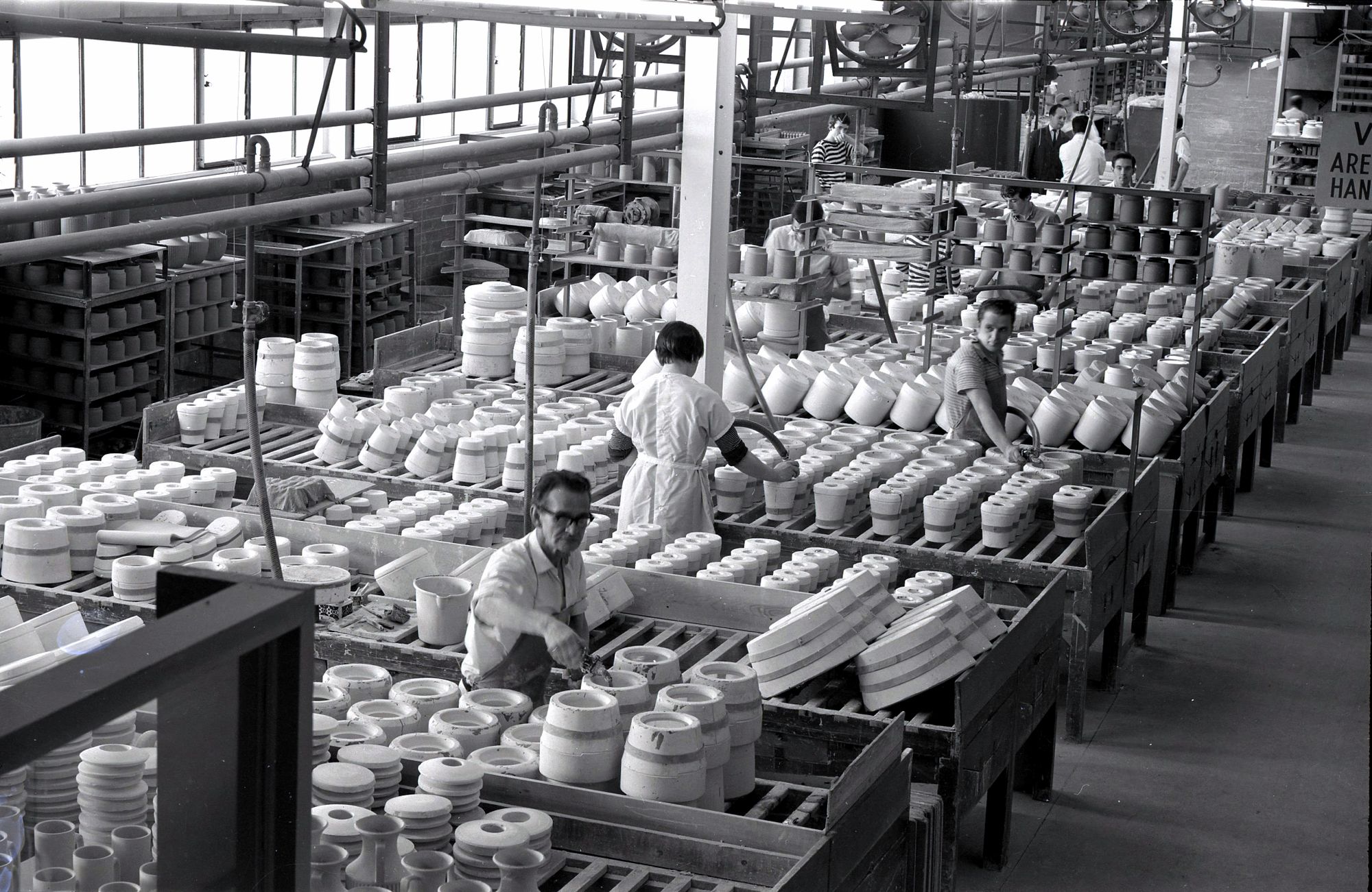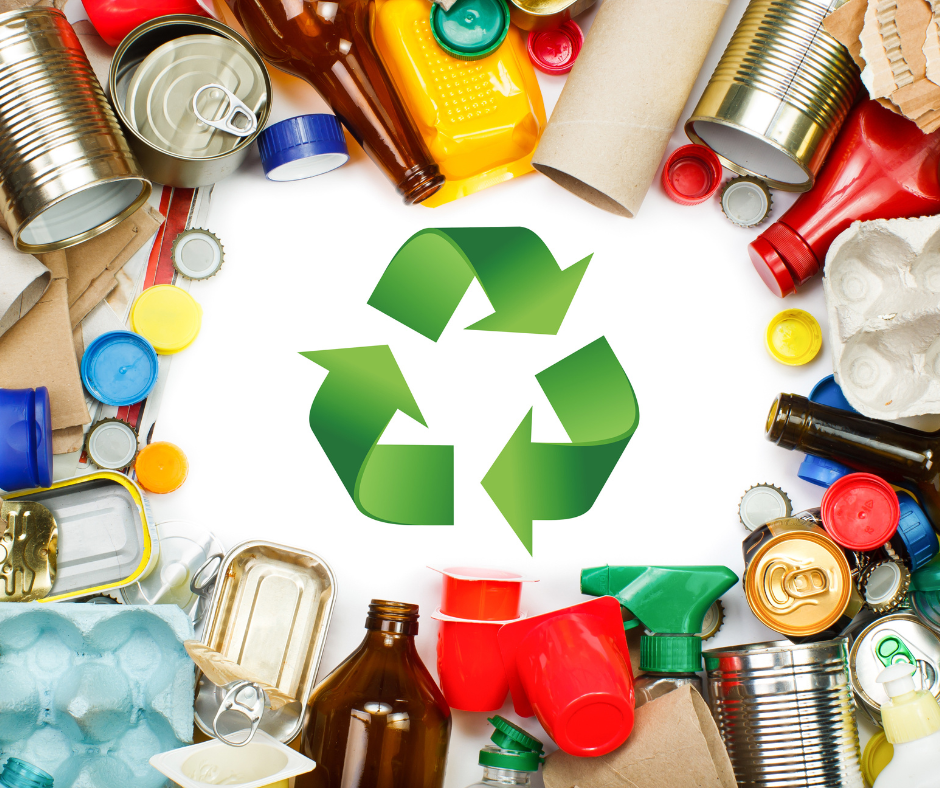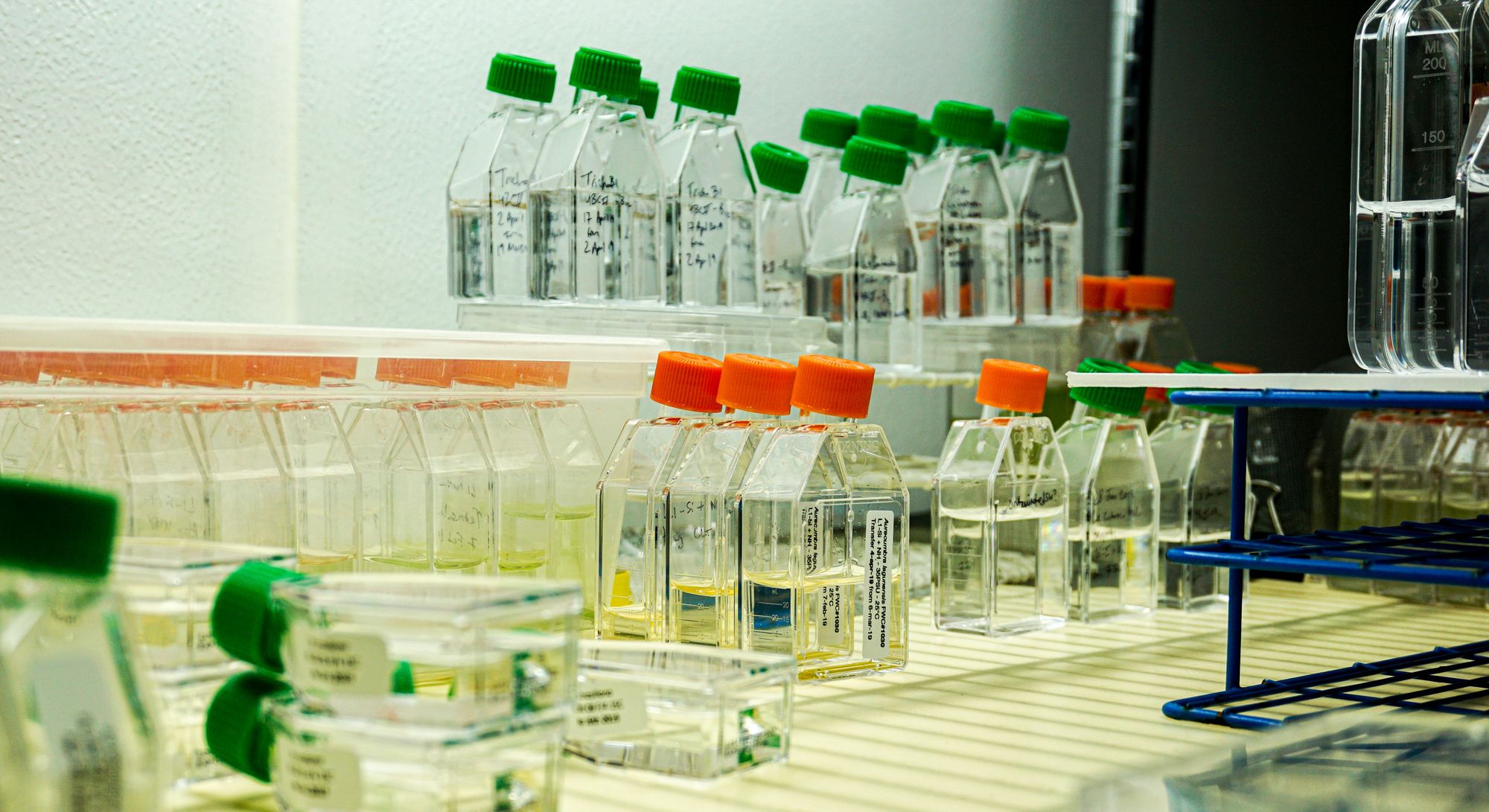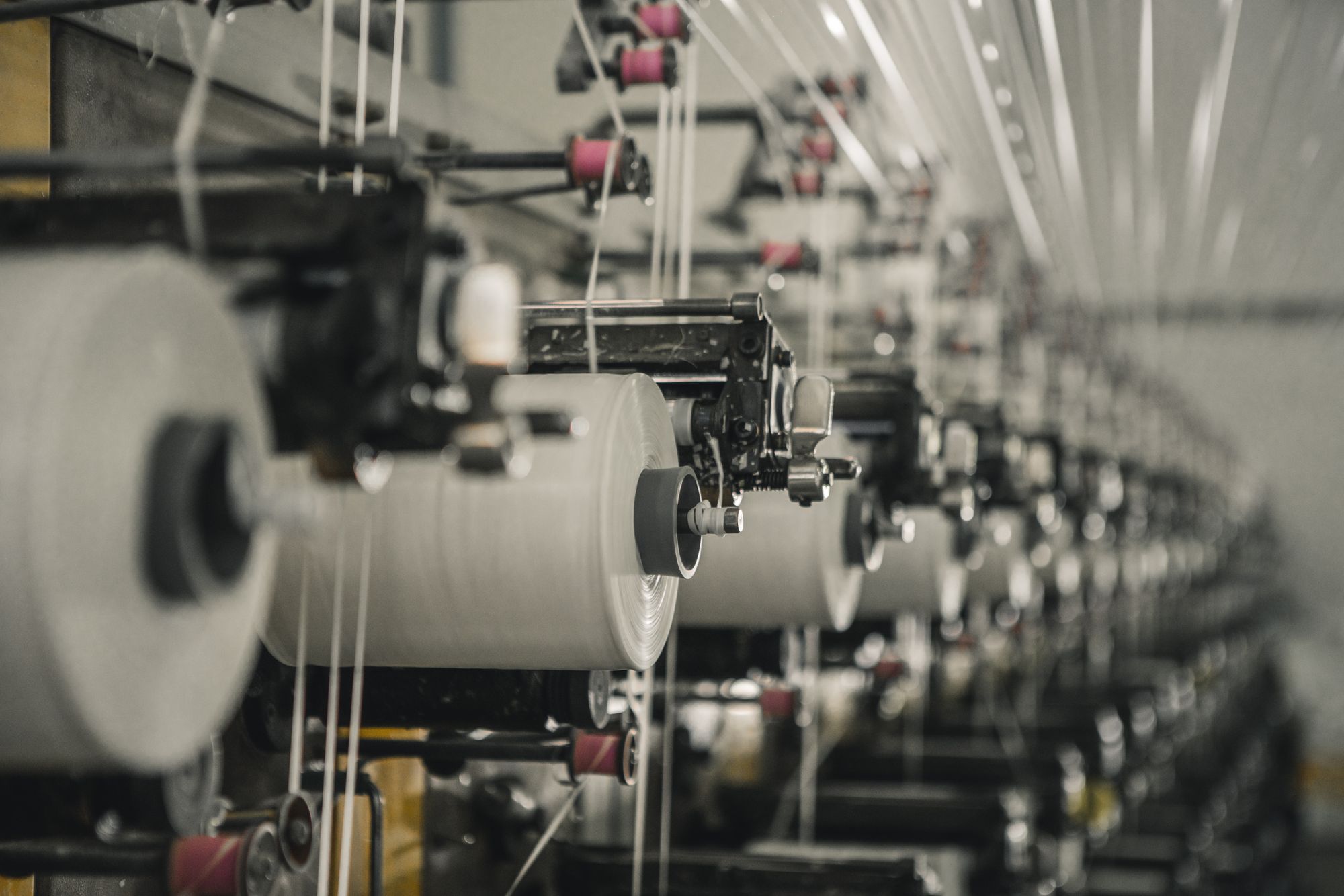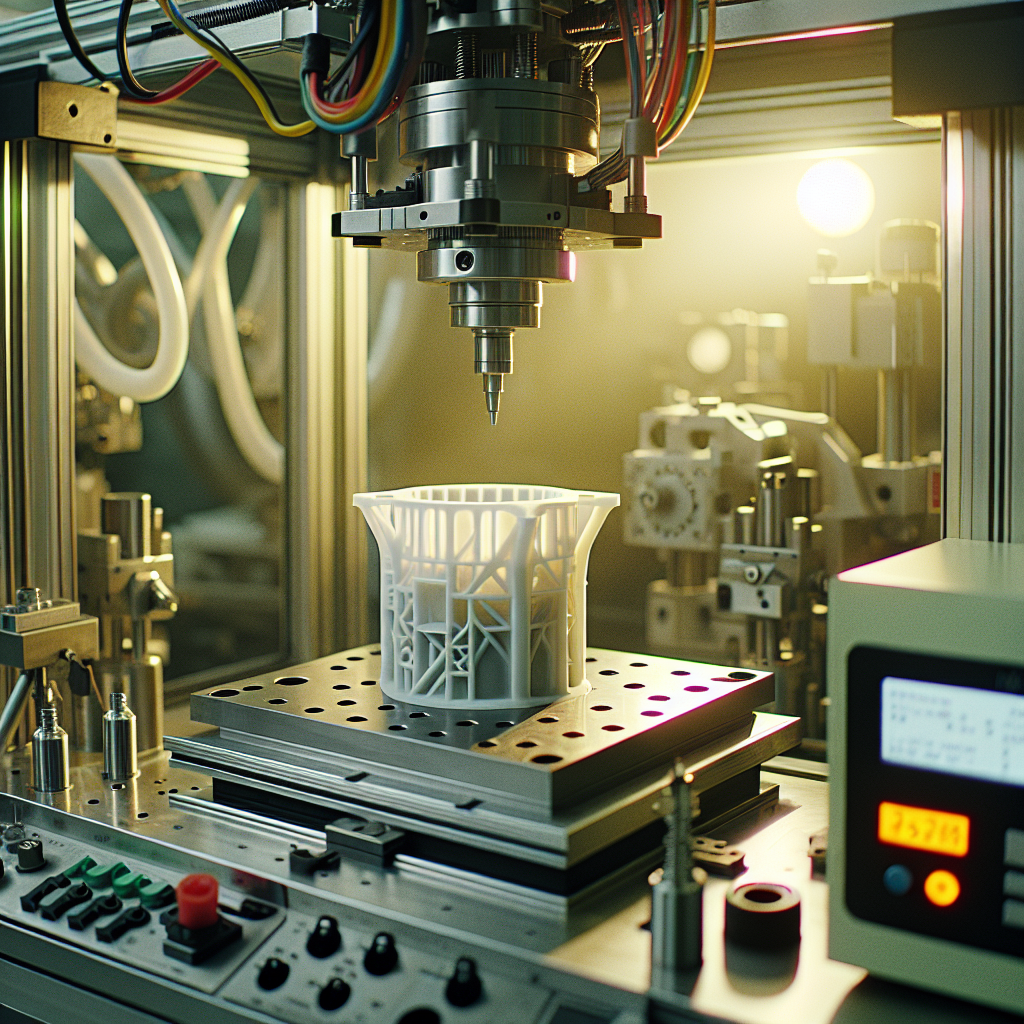Do you have a large and diverse Plastic Manufacturing project? Are you looking for an outside contractor to help get the job done? If so, outsourcing your plastic manufacturing may be the best option for you. Here are some reasons why outsourcing your plastic manufacturing can be a great decision.
In today's economy, it is important to find ways to do things that can be done more cheaply and effectively. Outsourcing has become one of the best methods for accomplishing this goal. There are many reasons why outsourcing your plastic manufacturing can be beneficial.
And we’ll discuss about them thoroughly here in this article. Let’s take a look at the table of content below:
- Meaning of Outsourcing Plastic Manufacturing
- Need of Outsourcing in Plastic Manufacturing
- Top Benefits of Outsourcing your Plastic Manufacturing
- How to Mitigate the Risks Involved in Outsourcing of Plastic Manufacturing?
- Frequently Asked Questions (FAQs) Associated with Outsourcing of Plastic Manufacturing
- Wrapping Up
- How Deskera Can Assist You?
Meaning of Outsourcing Plastic Manufacturing
Outsourcing plastic manufacturing refers to the practice of hiring a third-party company to handle the production of plastic products instead of having an in-house manufacturing operation.
In this arrangement, a company contracts with an external manufacturer to produce plastic parts, components, or finished products on their behalf.
Need of Outsourcing in Plastic Manufacturing
Outsourcing in plastic manufacturing can be highly beneficial for businesses. Here are some reasons why outsourcing is important in the plastic manufacturing industry:
Cost Savings:
Outsourcing can help businesses save money on their manufacturing costs. In-house manufacturing requires a significant investment in equipment, raw materials, and labor. Outsourcing to a specialized manufacturer can help businesses reduce these costs by taking advantage of economies of scale, lower labor costs in other countries, and better negotiation power with suppliers.
Access to Specialized Expertise:
Outsourcing plastic manufacturing can provide businesses with access to specialized expertise that may not be available in-house. For example, specialized manufacturers may have experience in specific production techniques or may be experts in a particular type of plastic material. This can result in higher quality products and more efficient production processes.
Improved Efficiency and Flexibility:
Outsourcing can also improve efficiency and flexibility in plastic manufacturing. Specialized manufacturers often have better technology and more advanced equipment, which can reduce lead times and increase production capacity. This can help businesses to better respond to changing market demands and customer needs.
Risk Reduction:
Outsourcing can also reduce risks associated with plastic manufacturing. In-house manufacturing carries risks such as regulatory compliance, equipment maintenance, and supply chain disruptions. Outsourcing can help businesses to mitigate these risks by leveraging the expertise of specialized manufacturers who have experience dealing with these issues.
Overall, outsourcing in plastic manufacturing can provide businesses with numerous benefits, including cost savings, access to specialized expertise, improved efficiency and flexibility, and risk reduction.
By outsourcing their plastic manufacturing needs, businesses can focus on their core competencies and achieve greater success in their industry.
Top Benefits of Outsourcing your Plastic Manufacturing
Following, we’ve discussed some crucial benefits of outsourcing your plastic manufacturing. Let’s discuss:
1. Cost Savings
Outsourcing plastic manufacturing can result in significant cost savings for businesses. Here's a breakdown of how outsourcing can reduce costs, a comparison of in-house manufacturing costs vs. outsourcing costs, and some examples of companies that have saved money by outsourcing their plastic manufacturing.
How Outsourcing Reduces Costs:
Outsourcing to a specialized manufacturer can help businesses reduce their manufacturing costs in several ways:
- Lower Labor Costs: Many companies choose to outsource to countries where labor costs are lower than in their home country. This can result in significant savings on labor costs, especially for labor-intensive processes.
- Reduced Overhead Costs: In-house manufacturing requires significant investments in equipment, facilities, and raw materials. By outsourcing, businesses can reduce or eliminate these costs, freeing up resources to invest in other areas of their business.
- Economies of Scale: Specialized manufacturers often have larger production runs and can take advantage of economies of scale to lower costs. They may also have better relationships with suppliers and can negotiate lower prices for raw materials and other inputs.
- Reduced Risk: Outsourcing can help reduce the risk of costly mistakes and production errors. Specialized manufacturers have experience and expertise in their field and can help businesses avoid costly errors and rework.
Comparison of In-House Manufacturing Costs vs. Outsourcing
Costs: The costs of in-house manufacturing vs. outsourcing can vary widely depending on the specific circumstances of each business. However, in general, outsourcing is often more cost-effective than in-house manufacturing.
Following, we've discussed some factors that can affect the costs of each approach:
- Labor Costs: In-house manufacturing requires businesses to hire and train employees to perform manufacturing tasks. This can be costly, especially if the business is located in an area with high labor costs. Outsourcing to a country with lower labor costs can result in significant savings.
- Equipment Costs: In-house manufacturing requires businesses to purchase and maintain equipment, which can be costly. Outsourcing eliminates these costs since the specialized manufacturer provides the necessary equipment.
- Facility Costs: In-house manufacturing requires businesses to rent or purchase a facility to house their manufacturing operations. Outsourcing eliminates this cost since the specialized manufacturer already has the necessary facilities.
- Raw Material Costs: Specialized manufacturers often have better relationships with suppliers and can negotiate lower prices for raw materials, resulting in cost savings for businesses.
Examples of Companies That Have Saved Money by Outsourcing Plastic Manufacturing:
Many companies have realized significant cost savings by outsourcing their plastic manufacturing. Here are a few examples:
- Nike: Nike outsourced its footwear manufacturing to countries such as Vietnam and China, where labor costs are lower. This resulted in significant cost savings for the company.
- Hasbro: Hasbro, a toy manufacturer, outsourced its manufacturing operations to countries such as China and Vietnam. This resulted in significant cost savings for the company, allowing it to invest in other areas of its business.
- Apple: Apple outsources its manufacturing to countries such as China and Taiwan, where labor costs are lower. This has allowed the company to keep its prices competitive and invest in other areas of its business.
All in all, outsourcing plastic manufacturing can result in significant cost savings for businesses. By outsourcing, businesses can reduce labor costs, overhead costs, take advantage of economies of scale, and reduce the risk of costly mistakes and errors. Many companies have realized these benefits and have saved money by outsourcing their plastic manufacturing operations.
2. Access to Specialized Expertise
Outsourcing plastic manufacturing to specialized manufacturers can provide businesses with access to expertise that may not be available in-house. Here's an explanation of specialized expertise in plastic manufacturing, the benefits of outsourcing to companies with specialized expertise, and some examples of companies that have benefited from outsourcing to specialized manufacturers.
Explanation of Specialized Expertise:
Specialized manufacturers have expertise in specific areas of plastic manufacturing, such as production techniques, types of plastic materials, and quality control.
They often have experience working with a wide range of customers and industries, giving them a unique perspective on manufacturing challenges and solutions. Specialized manufacturers may also have access to the latest technology and equipment, enabling them to produce high-quality products efficiently.
Benefits of Outsourcing to Companies with Specialized Expertise: Outsourcing to specialized manufacturers can provide businesses with several benefits, including:
- Higher Quality Products: Specialized manufacturers have expertise in specific areas of plastic manufacturing, allowing them to produce high-quality products that meet or exceed industry standards.
- Faster Production Times: Specialized manufacturers have access to the latest technology and equipment, enabling them to produce products more efficiently and with shorter lead times.
- Reduced Costs: Specialized manufacturers can provide cost savings by leveraging their expertise, experience, and economies of scale to reduce production costs.
- Flexibility: Specialized manufacturers can offer customized solutions tailored to the specific needs of their customers, providing greater flexibility in the manufacturing process.
Examples of Companies That Have Benefited from Outsourcing to Specialized Manufacturers: Many companies have realized the benefits of outsourcing to specialized manufacturers in the plastic manufacturing industry. Here are a few examples:
- Nestle: Nestle, a global food and beverage company, outsourced its plastic packaging manufacturing to a specialized manufacturer with expertise in plastic materials and recycling. This enabled Nestle to produce more sustainable packaging while maintaining the high quality and durability of its products.
- Philips: Philips, a global technology company, outsourced its plastic injection molding to a specialized manufacturer with expertise in the production of medical devices. This enabled Philips to produce high-quality medical devices that meet or exceed industry standards.
- Samsung: Samsung, a global electronics company, outsourced its plastic injection molding to a specialized manufacturer with expertise in the production of high-precision components. This enabled Samsung to produce high-quality electronic components more efficiently and with shorter lead times.
In conclusion, outsourcing plastic manufacturing to specialized manufacturers can provide businesses with access to specialized expertise, higher quality products, faster production times, reduced costs, and greater flexibility.
Many companies have realized these benefits and have benefited from outsourcing to specialized manufacturers in the plastic manufacturing industry.
3. Improved Efficiency and Flexibility
Outsourcing plastic manufacturing can provide businesses with several advantages in terms of improving efficiency and flexibility. Here's an explanation of how outsourcing can improve efficiency and flexibility in plastic manufacturing, how it can reduce lead times and increase production capacity, and some examples of companies that have increased efficiency and flexibility through outsourcing.
Improving Efficiency and Flexibility: Outsourcing plastic manufacturing can improve efficiency and flexibility in several ways, including:
- Specialized Expertise: As discussed earlier, outsourcing to specialized manufacturers can provide access to specialized expertise, allowing businesses to produce higher quality products more efficiently.
- Reduced Overhead Costs: By outsourcing plastic manufacturing, businesses can reduce overhead costs associated with maintaining and upgrading equipment, hiring and training personnel, and managing inventory.
- Greater Flexibility: Outsourcing allows businesses to adjust production capacity more quickly and easily, depending on demand fluctuations, without incurring additional costs.
- Reducing Lead Times and Increasing Production Capacity: Outsourcing plastic manufacturing can also help businesses reduce lead times and increase production capacity, which can improve efficiency and flexibility. Specialized manufacturers often have access to the latest technology and equipment, allowing them to produce products more efficiently and with shorter lead times. They can also scale production up or down quickly, depending on demand, enabling businesses to meet customer needs more effectively.
Examples of Companies That Have Increased Efficiency and Flexibility Through Outsourcing: Many companies have realized the benefits of outsourcing in terms of improving efficiency and flexibility. Here are a few examples:
- Nike: Nike, a global athletic apparel and footwear company, outsourced the production of some of its plastic components to a specialized manufacturer. This enabled Nike to reduce lead times, increase production capacity, and improve the quality of its products.
- Ford: Ford, a global automotive company, outsourced the production of some of its plastic components to a specialized manufacturer. This allowed Ford to reduce lead times, increase production capacity, and improve the efficiency of its manufacturing processes.
- Apple: Apple, a global technology company, outsourced the production of some of its plastic components to a specialized manufacturer. This enabled Apple to reduce lead times, increase production capacity, and improve the quality of its products.
In conclusion, outsourcing plastic manufacturing can improve efficiency and flexibility by providing businesses with specialized expertise, reducing overhead costs, and enabling them to adjust production capacity more quickly and easily. Outsourcing can also help businesses reduce lead times and increase production capacity, as demonstrated by the examples of Nike, Ford, and Apple.
4. Risk Reduction
Outsourcing plastic manufacturing can help businesses reduce risks associated with in-house manufacturing. Here's an explanation of how outsourcing can reduce risks associated with plastic manufacturing, the risks associated with in-house manufacturing, and some examples of companies that have reduced risks by outsourcing plastic manufacturing.
Reducing Risks: Outsourcing plastic manufacturing can reduce risks associated with in-house manufacturing in several ways, including:
- Regulatory Compliance: Specialized manufacturers are often experts in regulatory compliance, which can be particularly important in industries such as medical devices and electronics. By outsourcing to a specialized manufacturer, businesses can ensure that their products meet regulatory standards.
- Equipment Maintenance: Equipment maintenance can be expensive and time-consuming. By outsourcing to a specialized manufacturer, businesses can ensure that equipment is maintained and upgraded without incurring additional costs.
- Supply Chain Disruptions: Supply chain disruptions can occur due to natural disasters, economic downturns, or other factors. By outsourcing to a specialized manufacturer with multiple suppliers, businesses can reduce the risk of supply chain disruptions.
- Risks Associated with In-House Manufacturing: There are several risks associated with in-house manufacturing, including:
- Regulatory Compliance: Compliance with regulatory standards can be complex and time-consuming, particularly for businesses operating in highly regulated industries.
Examples of Companies That Have Reduced Risks by Outsourcing Plastic Manufacturing: Many companies have realized the benefits of outsourcing in terms of reducing risks associated with in-house manufacturing. Here are a few examples:
- Medtronic: Medtronic, a global medical technology company, outsourced the production of some of its plastic components to a specialized manufacturer. This enabled Medtronic to ensure regulatory compliance, reduce equipment maintenance costs, and reduce the risk of supply chain disruptions.
- GE Appliances: GE Appliances, a global home appliance manufacturer, outsourced the production of some of its plastic components to a specialized manufacturer. This enabled GE Appliances to ensure regulatory compliance, reduce equipment maintenance costs, and reduce the risk of supply chain disruptions.
- Hewlett Packard: Hewlett Packard, a global technology company, outsourced the production of some of its plastic components to a specialized manufacturer. This enabled Hewlett Packard to ensure regulatory compliance, reduce equipment maintenance costs, and reduce the risk of supply chain disruptions.
In conclusion, outsourcing plastic manufacturing can reduce risks associated with in-house manufacturing by ensuring regulatory compliance, reducing equipment maintenance costs, and reducing the risk of supply chain disruptions.
As demonstrated by the examples of Medtronic, GE Appliances, and Hewlett Packard, many companies have realized the benefits of outsourcing in terms of reducing risks associated with plastic manufacturing.
Risks of Outsourcing of Plastic Manufacturing
Outsourcing plastic manufacturing can come with several risks. Here are some of the most significant risks that companies should be aware of:
Quality Issues
If the third-party manufacturer produces subpar components or products, it can reflect poorly on the contracting company. Quality issues can lead to product recalls, which can be costly in terms of both financial expenses and reputational damage. To minimize this risk, it's important to choose a reputable and experienced manufacturer and establish clear quality standards and expectations.
Intellectual Property Theft
If the third-party manufacturer gains access to the contracting company's proprietary information, it can result in theft of intellectual property. This can include confidential designs, formulas, or other sensitive information that can be used to replicate products or processes.
To minimize this risk, it's important to establish clear contractual agreements regarding intellectual property rights and to choose a manufacturer that has a good reputation for protecting its clients' confidential information.
Logistics Issues
If the third-party manufacturer experiences logistical issues, such as shipping delays or supply chain disruptions, it can result in delays in the delivery of the components or products. This can lead to missed deadlines and financial losses. To minimize this risk, it's important to choose a manufacturer that has a reliable supply chain and can provide accurate delivery estimates.
Regulatory Compliance Issues
If the third-party manufacturer fails to comply with regulatory standards, it can result in regulatory fines or product recalls. Regulatory compliance can vary depending on the industry and the specific product being produced, so it's important to choose a manufacturer that has experience and expertise in regulatory compliance.
The contracting company should also conduct regular quality checks and audits to ensure that the third-party manufacturer is meeting its quality standards and complying with regulatory standards.
Overall, the risks of outsourcing plastic manufacturing can be significant, but they can be mitigated by choosing a reputable and experienced manufacturer, establishing clear quality standards and expectations, protecting intellectual property, ensuring reliable logistics, and maintaining open communication throughout the manufacturing process.
How to Mitigate the Risks Involved in Outsourcing of Plastic Manufacturing?
Outsourcing plastic manufacturing can bring a range of benefits, but it also involves some inherent risks. Here are some ways to minimize the risks of outsourcing plastic manufacturing:
Choose the Right Manufacturer:
Choose a manufacturer that has a good reputation for producing high-quality products and has experience in your industry. Look for reviews and recommendations, check their credentials and certifications, and visit their facility if possible. Consider the manufacturer's location, pricing, and supply chain logistics.
Establish Clear Communication and Expectations:
It is crucial to establish clear communication with the manufacturer and set clear expectations before the manufacturing process begins. Define quality standards, timelines, delivery expectations, and other important details. Clearly outline what is expected of both parties and establish a regular communication protocol.
Protect Your Intellectual Property:
If you have intellectual property related to the product you are outsourcing, it is essential to protect it. This can be done by establishing a clear contract with the manufacturer, including non-disclosure agreements and other legal provisions. It may be necessary to patent or trademark your product to ensure protection.
Monitor the Process:
Regular monitoring and quality control checks can ensure that the product is being manufactured to your specifications. Conduct regular audits of the manufacturer's facility and track the production process. Establish a system for detecting and addressing any quality issues that may arise.
Manage Supply Chain Risks:
Understand the risks associated with the supply chain and take measures to minimize them. Consider having backup suppliers in case of disruptions or delays. Develop contingency plans to address any supply chain issues that may arise.
Stay Up-to-Date on Regulatory Compliance:
Regulations and standards can change over time. Stay up-to-date on regulatory compliance standards, and ensure that your manufacturer is compliant. Ensure that you have a system in place to audit the manufacturer's regulatory compliance.
In summary, minimizing the risks of outsourcing plastic manufacturing involves careful planning, communication, and monitoring. By taking steps to mitigate potential risks, you can maximize the benefits of outsourcing and ensure a successful manufacturing process.
Frequently Asked Questions (FAQs) Associated with Outsourcing of Plastic Manufacturing
Following, we’ve discussed some of the crucial frequently asked questions (FAQs) linked with outsourcing of plastic manufacturing. Let’s discuss:
Que 1: What is outsourcing plastic manufacturing?
Ans: Outsourcing plastic manufacturing involves contracting with a third-party manufacturer to produce plastic components or products. The third-party manufacturer typically has specialized equipment and expertise in plastic manufacturing and can produce components or products more efficiently and cost-effectively than the contracting company can do in-house.
Que 2: Why do companies outsource plastic manufacturing?
Ans: Companies outsource plastic manufacturing for a variety of reasons, including:
- Cost savings: Outsourcing plastic manufacturing can often be more cost-effective than producing components or products in-house.
- Specialized expertise: Third-party manufacturers often have specialized expertise in plastic manufacturing, which can result in higher quality products.
- Efficiency and flexibility: Outsourcing plastic manufacturing can increase efficiency and flexibility by reducing lead times and increasing production capacity.
- Risk reduction: Outsourcing plastic manufacturing can reduce risks associated with in-house manufacturing, such as regulatory compliance, equipment maintenance, and supply chain disruptions.
Que 3: What types of companies typically outsource plastic manufacturing?
Ans: Companies of all sizes and industries can benefit from outsourcing plastic manufacturing. However, some industries that commonly outsource plastic manufacturing include:
- Medical device manufacturing
- Electronics manufacturing
- Automotive manufacturing
- Consumer goods manufacturing
Que 4: What types of plastic manufacturing processes can be outsourced?
Ans: A wide range of plastic manufacturing processes can be outsourced, including:
- Injection molding
- Blow molding
- Thermoforming
- Rotational molding
- Extrusion
Que 5: How do I choose a plastic manufacturing partner?
Ans: When choosing a plastic manufacturing partner, it's important to consider factors such as:
- Expertise and capabilities: Do the manufacturer have the expertise and capabilities to produce the components or products you need?
- Quality standards: Does the manufacturer have a proven track record of producing high-quality products?
- Cost-effectiveness: Is the manufacturer's pricing competitive?
- Lead times: Can the manufacturer produce components or products within the required timeframe?
- Regulatory compliance: Does the manufacturer have experience and expertise in regulatory compliance?
Que 6: How can outsourcing plastic manufacturing help my company save money?
Ans: Outsourcing plastic manufacturing can help companies save money in several ways, including:
- Reduced labor costs: Outsourcing to a specialized manufacturer can eliminate the need for in-house labor and associated costs.
- Reduced equipment costs: Specialized manufacturers typically have the latest equipment and can bear the cost of purchasing and maintaining the equipment.
- Reduced material costs: Specialized manufacturers can often purchase raw materials at lower costs than in-house manufacturers can.
- Economies of scale: Specialized manufacturers can often produce components or products at a larger scale, resulting in lower per-unit costs.
Wrapping Up
Outsourcing plastic manufacturing can be a beneficial strategy for companies looking to reduce costs, improve efficiency and flexibility, and access specialized expertise. However, it also comes with inherent risks that need to be managed effectively.
To ensure a successful outsourcing process, companies should carefully evaluate potential manufacturers, establish clear communication and expectations, protect their intellectual property, monitor the manufacturing process, manage supply chain risks, and stay up-to-date on regulatory compliance.
When done right, outsourcing plastic manufacturing can result in cost savings, increased production capacity, and improved product quality. By minimizing risks and maximizing benefits, companies can achieve their manufacturing goals and maintain a competitive edge in their respective markets.
How Deskera Can Assist You?
Deskera's integrated financial planning tools allow investors to better plan their investments and track their progress. It can help investors make decisions faster and more accurately.
Deskera Books enables you to manage your accounts and finances more effectively. Maintain sound accounting practices by automating accounting operations such as billing, invoicing, and payment processing.

Deskera CRM is a strong solution that manages your sales and assists you in closing agreements quickly. It not only allows you to do critical duties such as lead generation via email, but it also provides you with a comprehensive view of your sales funnel.
Deskera People is a simple tool for taking control of your human resource management functions. The technology not only speeds up payroll processing but also allows you to manage all other activities such as overtime, benefits, bonuses, training programs, and much more. This is your chance to grow your business, increase earnings, and improve the efficiency of the entire production process.
Final Takeaways
We've arrived at the last section of this guide. Let's have a look at some of the most important points to remember:
- Outsourcing plastic manufacturing refers to the practice of hiring a third-party company to handle the production of plastic products instead of having an in-house manufacturing operation. In this arrangement, a company contracts with an external manufacturer to produce plastic parts, components, or finished products on their behalf.
- Outsourcing can help businesses save money on their manufacturing costs. In-house manufacturing requires a significant investment in equipment, raw materials, and labor. Outsourcing to a specialized manufacturer can help businesses reduce these costs by taking advantage of economies of scale, lower labor costs in other countries, and better negotiation power with suppliers.
- In-house manufacturing requires businesses to hire and train employees to perform manufacturing tasks. This can be costly, especially if the business is located in an area with high labor costs. Outsourcing to a country with lower labor costs can result in significant savings.
- Specialized manufacturers have expertise in specific areas of plastic manufacturing, such as production techniques, types of plastic materials, and quality control. They often have experience working with a wide range of customers and industries, giving them a unique perspective on manufacturing challenges and solutions. Specialized manufacturers may also have access to the latest technology and equipment, enabling them to produce high-quality products efficiently.
- Equipment maintenance can be expensive and time-consuming. By outsourcing to a specialized manufacturer, businesses can ensure that equipment is maintained and upgraded without incurring additional costs.
- If the third-party manufacturer produces subpar components or products, it can reflect poorly on the contracting company. Quality issues can lead to product recalls, which can be costly in terms of both financial expenses and reputational damage. To minimize this risk, it's important to choose a reputable and experienced manufacturer and establish clear quality standards and expectations.
Related Articles

